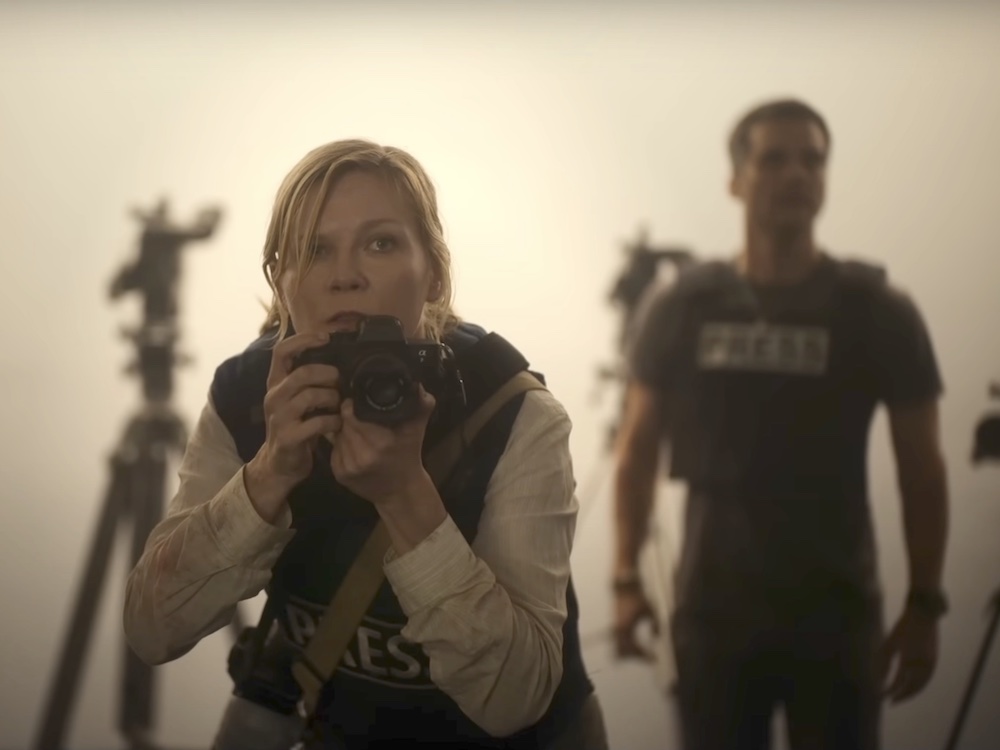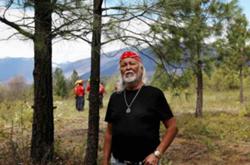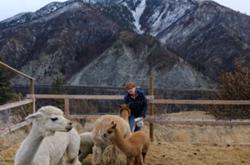It’s an election year in the United States. As the stakes continue to rise, speculation about whether real conflict might break out as Americans inch closer to the presidential election on Nov. 5 is also heating up.
Given the real-world parameters and implications, Civil War, a new movie on the fictional, futuristic downfall of America, comes at an odd moment.
At the helm is U.K. director Alex Garland (28 Days Later, Ex Machina). The narrative borrows from earlier films, including Francis Ford Coppola’s Apocalypse Now, lightly dusted with Oliver Stone’s Salvador. The enduring message that war is hell is abundantly clear, but Civil War isn’t so much a cautionary tale as it is a workplace drama.
In this case, the work is the bloody feat of documentation. As violence erupts on the streets, the team of journalists at the centre of the story has a job to do.
At the centre of the action is Lee Smith (Kirsten Dunst), a hard-bitten war photographer who has seen more than her fair share of horrors. Lee’s partner is Joel (Wagner Moura), a reporter with a predilection for weed and vodka. Together the pair have ambitions to interview the president before he is summarily offed. As Joel notes: “It’s the only story left.”
So, onwards into the jaws of war, which is helpfully located in Washington, D.C. All around, there’s open conflict in the streets of the United States. It’s hard to figure out who exactly is fighting whom, and it never really gets any clearer. Texas and California have joined forces. Florida is in there somewhere. A fair chunk of America is hiding out in the centre of the country, pretending that nothing is really happening. So, maybe it’s not that far from reality.
But the propulsive narrative isn’t much interested in drawing exact parallels with the current reality of the divisive state of the union. Rather, it’s a tale of a journey into the wild in the style of Joseph Conrad’s novel Heart of Darkness, which Coppola adapted into his magnum opus Apocalypse Now.
In this case, however, it’s not a bald, sweaty Marlon Brando at the centre of the mission, but the leader of the purported free world hunkered down in the White House, surrounded by secret service loyalists. Here’s where the shades of Apocalypse hang the heaviest, with the combination of both symbolism and surrealism. That the enemy combatants do battle while dressed in Hawaiian shirts and cargo shorts is only the beginning.
Civil War ups the ante by adding two tagalongs, Jessie (Cailee Spaeny), an ingenue of a war photographer, and Sammy (Stephen McKinley Henderson) an old salt who still files for what’s left of the New York Times. Jessie is 23 but could pass for much younger, and Sammy, as he is repeatedly informed by his colleagues, is too old to be doing what he’s doing. The quartet of journalists sets forth in a white SUV with the word “PRESS” emblazoned in large type on the side of their vehicle.
A gentle word of warning: the film does not pull its punches in depicting the horrors of conflict. But as in the earlier cinematic work that came before it, there are moments of piercing, almost terrible beauty amongst the carnage. The camera takes in the length of a sharpshooter lying flat in a field of blooming clover. A swarm of helicopters is set against a verdant, lush landscape while a plaintive folk song hovers in the air.
At times, the calculated quality of beauty and horror seems a little too prescriptive. And the most effective scenes are the ones that you don’t see coming. I may never be able to look at actor Jesse Plemons in the same way again. Plemons, Dunst’s real-life husband, plays a soldier in the movie, complete with army fatigues, blood-soaked hands and cherry-red sunglasses. In a scene that has already garnered considerable discussion on the internet, Plemons buttonholes his fellow citizens with a quiet malevolence about where they’re from in the country. This exchange is all the more unsettling for its thin veneer of calm over horrific brutality.
As much as it’s about the boiling tension that roils underneath the surface of American society, Civil War is also about the struggle to maintain one’s humanity in the face of documenting horror. The conflict between the job of a journalist and the emotional toll of doing the work is addressed largely in conversations between photojournalists Lee and Jessie. Initially this relationship is presented as one between a grizzled veteran and an eager newbie, but it’s soon revealed that Jessie has more grit than one might assume.
While the film doesn’t quite reach the heights of All About Eve, where an ambitious youngster overtakes an aging star, there are implicit echoes as Jessie slowly eclipses her would-be mentor. In the violent roar of battle, Jessie has the invincible power of youth, whereas Lee knows all too well that death is only one wrong move away.
Civil War’s technical bravura is extraordinary, especially when viewed in a theatre, where the bass rumble of onscreen tanks and Humvees is felt deep in one’s own viscera. The sound design alone is a force to be reckoned with. But despite the extraordinary number of cinematic ordinances put to work, one leaves the theatre feeling numb and nullified. At the press screening in Vancouver, the laughter from the assembled film critics during the earlier scenes (a joke about Canadian currency being of far greater value than the U.S. dollar brought on some guffaws) slowly tapered out.
While the internet debates whether Civil War is meant as a warped mirror of current events, the deeper meaning slips in like a stealth combatant. It doesn’t really matter who is fighting whom in this conflict.
The most ominous statement in the film asks, “What kind of American are you?” It implies that some are more inherently genuine than others. Whatever the ideologies at work, all sides are destroyed.
As the nation’s sacred symbols like the White House, the Washington Monument and the Lincoln Memorial get blown into powder in the film, the darkest elements of human nature come striding out of the smoke and chaos.
This is where Civil War feels the closest to what might take place in the near future in the United States, as the ideals of democracy fall and rhetoric about freedom, pride and patriotism are replaced with open violence.
At the end of the screening, there was only dead silence as the credits rolled. The road in Civil War leads only to an open pit, a grave into which all nobler ideas and sentiments are lined up and obliterated.
‘Civil War’ opens in theatres on April 12. ![]()

















Tyee Commenting Guidelines
Comments that violate guidelines risk being deleted, and violations may result in a temporary or permanent user ban. Maintain the spirit of good conversation to stay in the discussion and be patient with moderators. Comments are reviewed regularly but not in real time.
Do:
Do not: